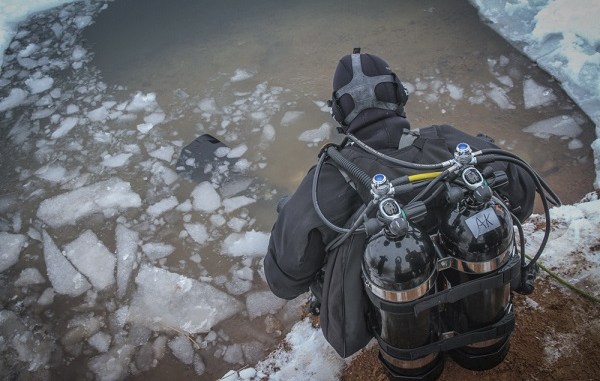
By Jim Garamone, DoD News.
The Special Operations community is making progress in its transformation to focus more on the challenges of China and Russia while maintaining the expertise to mount counterterrorism operations worldwide, Chris Maier, the assistant secretary of defense for special operations and low-intensity conflict told the Senate Armed Services Committee today.
Maier testified alongside Army Gen. Bryan Fenton, the commander of U.S. Special Operations Command, and both men were upbeat in their appraisal of where the community is and how it will get to the next level.
While Maier is an assistant secretary, Congress gave his position many of the authorities wielded by service secretaries regarding special operations forces — or SOF, as it is often called.
DOD officials are all in on this aspect, and Maier noted that when the Secretary of Defense Lloyd J. Austin III calls a meeting of the service secretaries, he sits at the table, too.
“Sitting before this committee last year, I testified we were at an inflection point in SOF’s transformation to focus more on the pacing challenge of China and the acute threat posed by Russia, while maintaining enduring capabilities to counter violent extremist organizations, address Iran’s destabilizing behavior and conduct no-fail crisis response around the globe,” Maier said.
The assistant secretary stressed that special operations forces are not separate from the rest of the military, and they are pulling their weight in support of the National Defense Strategy.
“We are transforming the SOF enterprise to achieve the goals of the NDS,” he said. “While SOF’s role in counterterrorism is widely understood and appreciated, my team and I work daily to ensure the value proposition of SOF in integrated deterrence and campaigning against strategic competitors is accounted for and incorporated into the department’s processes.”
One way is to exploit the deep relationships special operators have forged with allies and partners over the last two decades of conflict in Afghanistan, Iraq, Africa and Asia. This “has produced an international SOF enterprise that provides us unique, firsthand understanding of the global operating environment,” he told the senators. “It also has enhanced the resilience of our allies and partners to resist aggression.”
These relationships and the U.S. military’s unique ability to deploy and sustain forces to some of the most difficult locations in the world mean special operations forces formations “provide unique access and placement that create options for our nation’s leaders, and SOF is adept at creating dilemmas for our adversaries,” he said.
He noted the years of training special operations forces provided the Ukrainian forces, which transformed that nation’s military into a highly capable force “that is consistently outperforming Russia on the battlefield today,” Maier said.
Maier has also worked to guide special operations forces, writ large. “We have established over the last year in the department a series of recurring processes and delivered key outcomes for the SOF enterprise,” he said. “For example, the Special Operations Policy Oversight Council, which I chair, provides a senior-level forum to address SOF-unique challenges across the department. We also have made progress on important initiatives to deter our adversaries and fill warfighting gaps, especially on irregular warfare and information operations.”
He noted his office played a central role in DOD’s landmark civilian harm and mitigation response action plan.
But everything in special operations goes back to the first “truth” of the community: Humans are more important than hardware. “None of our efforts [is] possible without our most important resource, our people,” he said. “We continue to evolve the force and address SOF-unique challenges to optimize physical, psychological, social, spiritual, and now cognitive performance.”
Maier said a diverse force is a necessity. Removing barriers to participation and advancement in the community is “an operational imperative if we are to succeed in an ever more complex geopolitical environment,” he said.
Fenton said special operations forces remain a national advantage in this decisive era defined by the strategic competition with China and Russia. Those two nations seek to reshape the rules-based international order, he said. “In response, your special operations forces strengthen and sustain deterrence globally as part of the Department of Defense’s approach to integrated deterrence,” the general said.
Special operations forces really grew out of the cauldron of combat in World War II and they matured through the Cold War and proved their worth in the conflicts since the attacks of September 11, 2001. “Now drawing upon our 20-plus years of hard-won combat credibility and coalition experience, your SOF provides creative tailorable and asymmetric options for our nation, while creating dilemmas for our competitors,” Fenton said to the senators. “And as part of the broader joint force, we campaign every day, to deter and prevent aggression, counter coercion, close warfighting gaps and tackle shared challenges alongside allies and partners.”
*********
References: You can watch the video (2 1/2 hrs) and read the witness statements of ASD SO/LIC Christopher Maier, General Bryan Fenton (Cdr USSOCOM), and General Paul Nakasone (Cdr Cyber Command). Click here.
Photo: A Green Beret diver prepares to dive into a frozen reservoir during ice driving training on Fort Carson, Colorado, February 18, 2021. The training is part of a wide range of training conducted by the Green Berets on Fort Carson to help maintain their proficiency in Arctic warfare. (U.S. Army photo by SSG Eliverto V Larios)
This article by Jim Garamone was originally published by DoD News, on March 7, 2023. Content by the U.S. Department of Defense is in the public domain.